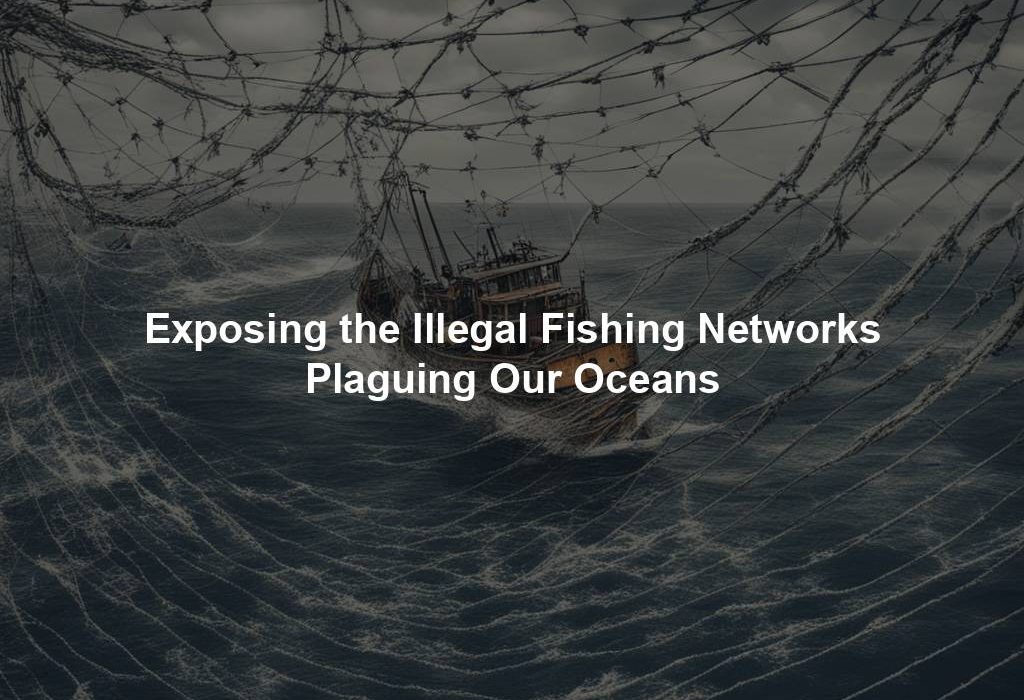The world’s oceans, vast and captivating, are not just bodies of water; they are homes to countless marine species and a source of sustenance, income, and joy for billions worldwide. Yet, beneath the shimmering waters lies a darker reality – illegal fishing networks that plague our oceans with impunity, leaving a trail of devastation in their wake.
Illegal fishing, under the ominous acronym IUU (Illegal, Unreported, and Unregulated) fishing, stands as a formidable threat to the sustainable management of fisheries and the preservation of marine ecosystems. These illicit operations involve fishing vessels skirting authorities, flouting regulations, using banned equipment, and preying on endangered species. The repercussions are dire, harming not just the environment but also robbing legitimate fishermen of their livelihoods and jeopardizing food security in coastal communities.
The scale of illegal fishing is staggering, with the United Nations Food and Agriculture Organization (FAO) estimating that up to 26 million tons of fish are illegally harvested each year, valued globally between $10 billion and $23.5 billion. This illicit catch represents a significant portion, ranging from 14% to 33%, of the total global fish harvest, posing a severe threat to the sustainability of marine fisheries.
This criminal industry thrives on a cocktail of factors – from excessive fishing capacities and lax governance to poverty, corruption, and insatiable global seafood demands. In many developing nations, the lack of monitoring resources and enforcement muscle creates fertile ground for illegal operators to exploit legal gaps and evade detection.
The illegal fishing networks are not mere ragtag operations; they are well-oiled machines with links to transnational criminal syndicates dabbling in activities like drug smuggling and human trafficking. Equipped with cutting-edge technology such as satellite tracking and sophisticated gear, these networks roam the ocean’s remote corners, far from prying eyes and enforcement reach, maximizing profits while minimizing risks of detection.
Confronting illegal fishing is a complex puzzle exacerbated by a lack of international collaboration and synergy. With rogue vessels traversing multiple jurisdictions, individual countries struggle to stem the tide alone. While Regional Fisheries Management Organizations (RFMOs) play a pivotal role in harmonizing anti-illegal fishing efforts, resource and mandate constraints often hobble their regulatory effectiveness.
On a brighter note, recent strides have been made in combating illegal fishing. The Port State Measures Agreement (PSMA), a brainchild of the FAO, mandates stringent inspections and permissions for vessels entering ports, with 70 nations already onboard, signaling a growing global resolve against illegal fishing.
Several countries have bolstered their legal frameworks and enforcement mechanisms to deter unlawful fishing practices. For instance, the European Union, Australia, and New Zealand have embraced robust monitoring systems to ensure compliance with fishing norms, ushering in a new era of transparency and accountability in their fisheries.
Yet, the specter of illegal fishing looms large, posing a grave threat to marine ecosystems and sustainable fishing practices. Tackling this crisis demands enhanced international collaboration, root-cause mitigation, and fortified monitoring and enforcement measures, necessitating political commitment, financial backing, and technical acumen at both national and international levels.
In essence, illegal fishing networks stand as formidable adversaries to the oceans’ well-being and longevity. To counter this menace, a united front comprising governments, NGOs, international bodies, and the private sector must join forces to combat illegal fishing, safeguard marine resources, and ensure a bountiful aquatic heritage for generations to come. Only through resolute action can we secure a future where our oceans thrive, teeming with life and vitality.
Sources:
– United Nations Food and Agriculture Organization (FAO)
– Port State Measures Agreement (PSMA)
– European Union Fisheries
– Australian Fisheries Management Authority
– New Zealand Ministry for Primary Industries
– Global Fishing Watch




